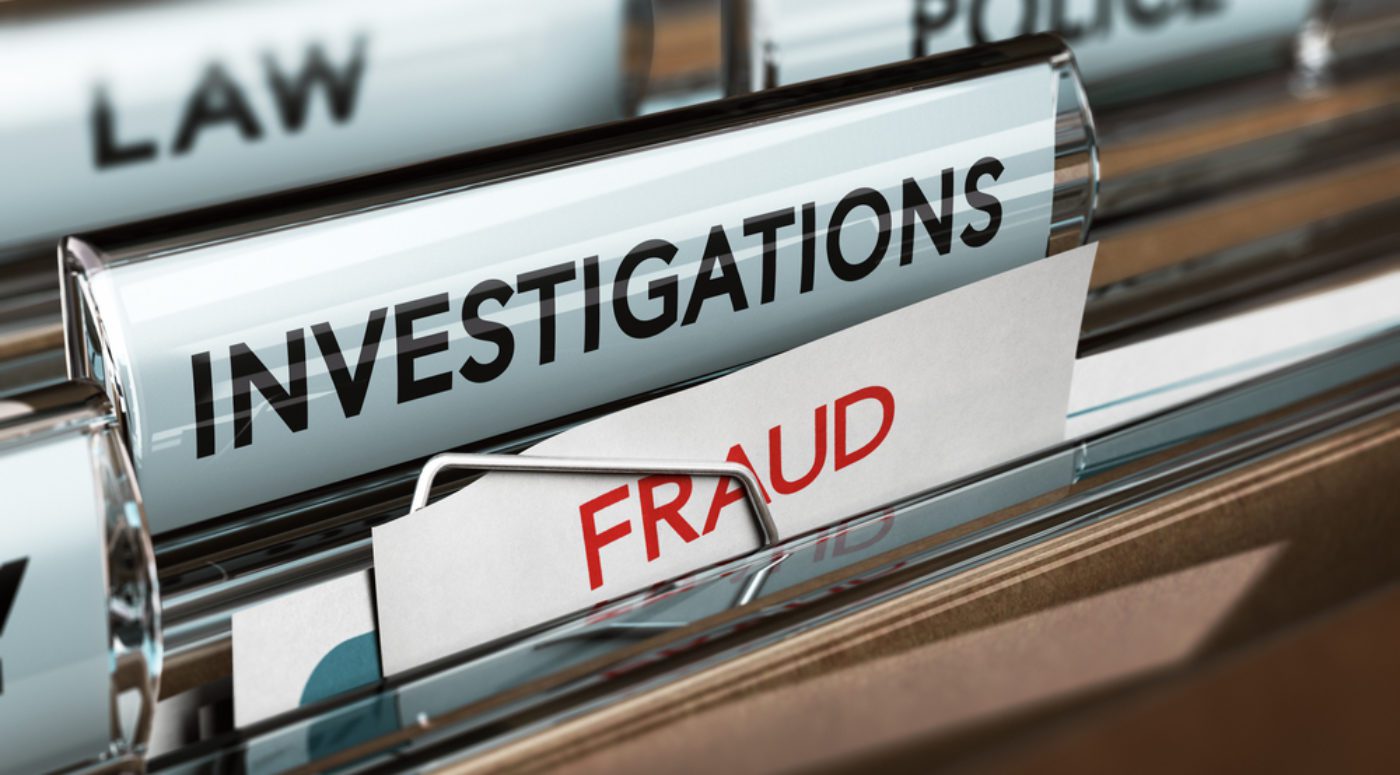

Fraud is now the most common criminal offence in the UK. In 2016/17, 3.4 million incidents of fraud were reported. According to the National Crime Agency it costs the UK around £190 billion every year. From identity fraud to false insurance claims, to fraudulent claims under the furlough scheme, it feels as though the UK is experiencing a deluge of different types of fraud. The Fraud Act 2006 is purposefully drafted widely to enable a large variety of different types of crime to fall within its auspices. If you have been charged with fraud by failing to disclose information, you may be wondering how this offence is made out and how it differs from fraud by false representation. This article explores, in detail, the offence of fraud by failing to disclose information.
What is fraud by failing to disclose information?
Fraud by failing to disclose information is set out at Section 3 Fraud Act 2006. The elements of the offence are:
- A breach of a legal duty to disclose information
- Intention to cause a gain to yourself or another or cause loss to another
This offence is often used in relation to fraud against insurance companies. You have a legal duty to provide your insurer with certain types of information. Failure to provide this information can lead to a charge of fraud being brought. Here are some examples of this offence:
- Failing to provide relevant information about your personal circumstances or history when obtaining your insurance cover. For example, not disclosing an underlying health condition when obtaining medical insurance or failing to inform the insurer about a previous car accident when obtaining car insurance.
- You make an insurance claim because you believe that you have lost your wedding ring. You subsequently find the ring, but you do not inform your insurer and take the payout anyway.
- Failing to disclose relevant information about an item which is about to be insured. This could include failing to notify your insurer about an existing defect with your car, or subsidence in your house.
How does the court decide if the defendant acted dishonestly?
The most important thing to remember is that in order to amount to fraud, an act must be dishonest. This means that well intentioned mistakes are unlikely to get you on the wrong side of the law of fraud. The UK Supreme Court created a test that the court must follow in order to decide if the defendant acted dishonestly. This is as follows:
- What was the actual state of the defendant’s knowledge/belief as to the facts?
- Would the action be considered to be dishonest by the standards of ordinary people?
This test first considers the defendant’s subjective mindset at the time of the offence. It then looks at whether an ordinary person would consider that the defendant acted dishonestly.
Fraud can be committed by companies, corporate entities, and other organisations, as well as individuals. A company can be convicted of fraud where it is found that a ‘directing will and mind‘ of the company committed the fraud. In those circumstances, the court will look at whether individuals in powerful positions within the company acted dishonestly.
How do you prove fraud by failing to disclose information?
In order to convict you of fraud, the prosecution must prove beyond reasonable doubt that you committed fraud by failing to disclose information. The prosecution will need to show that it was you, and not someone else, who performed the criminal act. They will also need to establish that you acted dishonestly. The role of the defence team is to cast doubt on the prosecution’s case. For example, your defence could be that it was a genuine mistake, and you did not knowingly try to deceive the ‘victim’ of the fraud.
These days, insurers have a wealth of evidence that can support the prosecution’s case. All calls to insurance companies are recorded. All of your email and online communications will also be retained by the insurer. In addition, the police may seize your electronic devices such as your phone and laptop and rely upon the evidence contained on them.
The police are obliged to investigate any defences that you put forward. If you allege that you did not act dishonestly, the court will need to consider what the true state of your knowledge was at the time of the events. In the courtroom, your defence barrister will ask you questions during your evidence in chief which aim to help explain your position. The prosecution may seek to question the veracity of your defence by subjecting you to cross examination. The court will also hear from witnesses who can give evidence as to whether you were aware of the information that you were obliged to disclose at the time of the alleged failure to disclose.
Other defences that might be relevant to an allegation of fraud by failing to disclose information include:
- Duress: This means that you were forced or intimidated into committing the offence. This only applies where you feared serious injury or a threat to your life if you did not comply with the pressure to commit a crime. Even where the pressure on you is not sufficient to succeed in a defence of duress, if you were persuaded or pressured to commit the offence, this will be taken into account by the court during sentencing.
- Insanity: This is where you lacked the ability to reason at the time of committing the offence, due to a recognised mental illness. In order to rely upon this defence, you will need to obtain an expert report from a medical doctor. The doctor will assess you in order to determine if you were mentally unwell at the time the crime occurred, and how this impacted upon your ability to reason.
- Mistake: When you committed the failure to disclose, you were mistaken as to certain key facts, and you would not have failed to disclose the information if you were aware of the true picture.
What is the difference between fraud by failing to disclose information and fraud by false representation?
Fraud by false representation is where you deliberately say or communicate an untruthful piece of information in order to make a gain for yourself or another or cause a loss to someone. It is set out at Section 2 of the Fraud Act 2006.
A false representation can be an oral or a written statement. It can be express or implied. There is some overlap between making an implied false representation and failing to disclose information. Sometimes the charges could be brought in the alternative. The exact charge to be laid depends on the specific facts of the case, and which offence seems to be the better fit.
That said, generally, fraud by false representation is more likely to relate to cases where the fraudster assumes a false identity, e.g. by harvesting information from data breaches on the internet. Meanwhile fraud by failing to disclose information is more likely to relate to cases where the fraudster deceives the victim in relation to the fraudster’s personal circumstances, or those of their business.
What are the three most common types of fraud?
The three main types of fraud set out by the Fraud Act 2006. These are:
- Fraud by abuse of position
- Fraud by false representation
- Fraud by failing to disclose information
The Fraud Act also provides for other forms of fraud such as obtaining services dishonestly, pursuant to Section 11. It also prohibits possessing, manufacturing, or supplying articles for use in frauds pursuant to Section 7 of Fraud Act.
If you are convicted of any of these forms of fraud, the maximum sentence is a 10 years’ imprisonment where the case is heard in the Crown Court. Cases heard in the Magistrates’ Court However, less serious cases of fraud may not result in a custodial sentence. When deciding the sentence that you should face, the court will consider the value of the fraud and the harm caused to the victim.
There are also other forms of fraud set out in the Theft Act 1968. These include:
- False accounting (Section 17 Theft Act), which includes offences such as falsifying account books.
- False statements by company directors (Section 19 Theft Act)
These offences have a maximum sentence of 7 years’ imprisonment.
Where to get further help?
If you have been accused of fraud, instruct a criminal defence solicitor that you can rely upon. At Stuart Miller solicitors, our experienced and hardworking lawyers are here to help. Through our trusted links with reputable barristers’ chambers, we will build a robust legal team for you, that will pull out all the stops to fight your corner. Contact us for a no obligation consultation today.
OUR COMMITMENTS TO YOU:
-
Responsive
A legal expert will consult you within 24 hours of making an enquiry.
-
Empathetic
We will always treat you with trust, understanding and respect.
-
Specialised
Your case will be handled by an expert who specialises in your type of offence.
-
Proactive
We will take early action to end proceedings as soon as it is practically and legally possible to do so.
-
Engaged
You will be kept updated on your case at all times. We will provide a named contact available to answer your questions.
-
Caring
We understand this is a difficult and stressful time for you and your family. Our team will support you every step of the way.
-
Tenacious
We will never give up on your case. We fight tirelessly to get you the best possible outcome.
